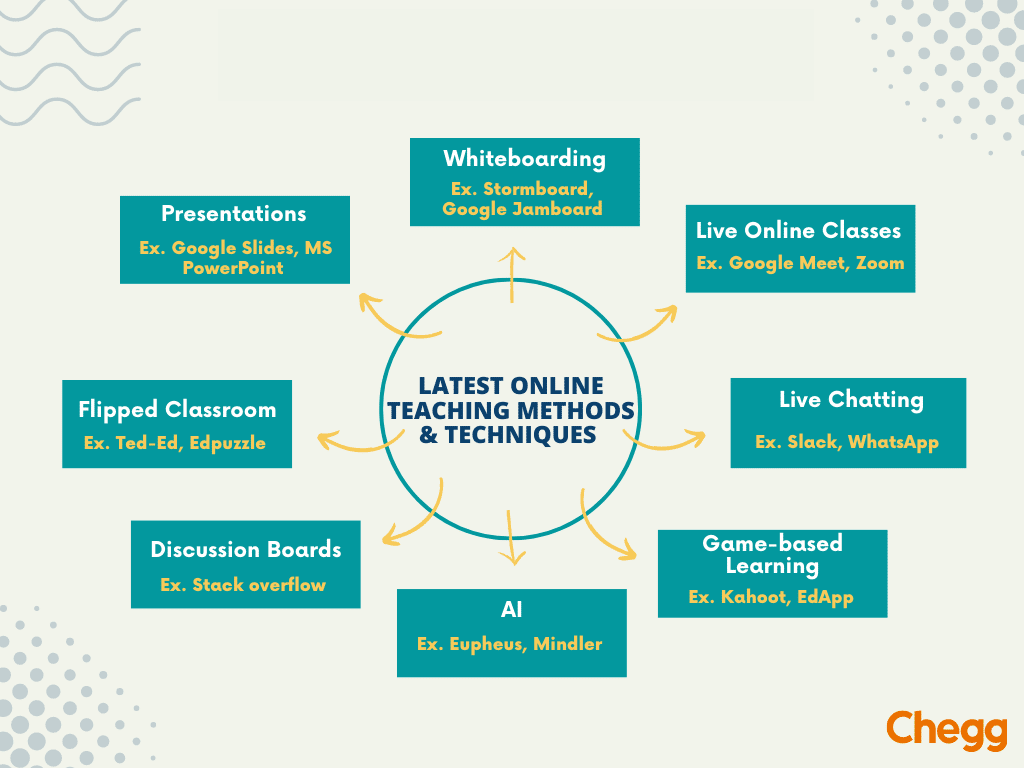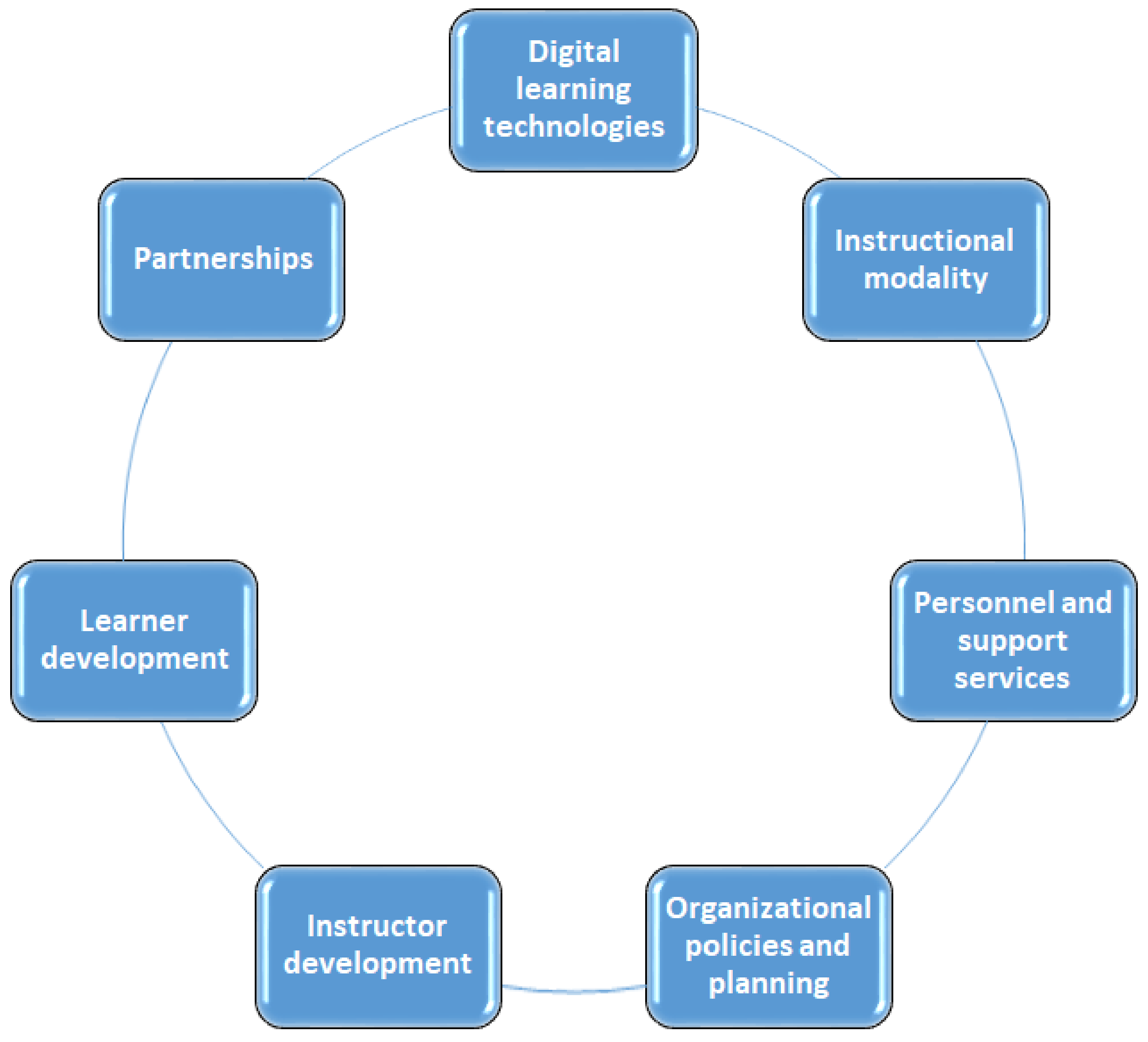The Expanding Landscape Of Online Teaching: Opportunities And Insights For Educators In The Digital Age
The Expanding Landscape of Online Teaching: Opportunities and Insights for Educators in the Digital Age
Related Articles: The Expanding Landscape of Online Teaching: Opportunities and Insights for Educators in the Digital Age
Introduction
In this auspicious occasion, we are delighted to delve into the intriguing topic related to The Expanding Landscape of Online Teaching: Opportunities and Insights for Educators in the Digital Age. Let’s weave interesting information and offer fresh perspectives to the readers.
Table of Content
The Expanding Landscape of Online Teaching: Opportunities and Insights for Educators in the Digital Age

The advent of the internet has revolutionized the education landscape, creating a plethora of opportunities for teachers to connect with students and share their knowledge beyond the traditional classroom walls. This shift has fostered a burgeoning market for online teaching jobs, offering educators a diverse range of roles and avenues to continue their passion for teaching in a flexible and accessible manner.
This article delves into the multifaceted world of online teaching jobs, exploring the different types of positions available, the skills and qualifications required, the benefits of pursuing this career path, and the challenges that may be encountered. It aims to provide a comprehensive overview of this dynamic field, empowering educators to make informed decisions about their professional journey in the digital age.
A Spectrum of Online Teaching Opportunities
The realm of online teaching encompasses a wide spectrum of roles, catering to diverse educational needs and learning styles. Here are some prominent categories of online teaching jobs:
1. Online Tutoring: This is perhaps the most prevalent form of online teaching, involving one-on-one or small group instruction in a specific subject area. Online tutors work with students of various ages and levels, providing personalized guidance and support. Popular platforms like Khan Academy, Chegg Tutors, and TutorMe connect tutors with students seeking assistance in subjects ranging from math and science to language arts and test preparation.
2. Virtual School Teacher: Virtual schools offer fully online educational programs, employing teachers to deliver curriculum and instruction remotely. These teachers are responsible for developing engaging lesson plans, conducting virtual classes, grading assignments, and providing feedback to students. Virtual school teachers typically work with students enrolled in K-12 programs, but there are also opportunities for higher education institutions.
3. Online Course Instructor: Many universities, colleges, and online learning platforms hire instructors to develop and deliver online courses. These courses can range from introductory level to advanced, covering a wide array of disciplines. Online course instructors are responsible for designing the course content, creating engaging learning materials, facilitating discussions, and assessing student performance. Platforms like Coursera, edX, and Udemy offer opportunities for educators to create and teach their own courses.
4. Online ESL Teacher: The demand for online English as a Second Language (ESL) teachers is consistently high, driven by the increasing global need for English language proficiency. Online ESL teachers work with students from various countries, providing conversational practice, grammar instruction, and cultural immersion experiences. Popular platforms like iTalki, Verbling, and Preply connect ESL teachers with students seeking language learning support.
5. Online Teacher Training and Development: Educators with expertise in specific teaching methodologies or subject areas can find opportunities to train and develop other teachers online. This can involve delivering workshops, webinars, or online courses on topics such as technology integration, curriculum development, or assessment strategies.
Skills and Qualifications for Online Teaching
While the specific requirements for online teaching roles vary depending on the platform, level, and subject matter, there are some core skills and qualifications that are generally essential:
- Strong Subject Matter Expertise: A deep understanding of the subject matter being taught is crucial for effective instruction.
- Excellent Communication Skills: Online teachers need to be adept at conveying information clearly and engagingly through various mediums, such as video conferencing, written communication, and online discussion forums.
- Technology Proficiency: Familiarity with various online learning platforms, video conferencing tools, and digital assessment methods is essential for navigating the digital teaching environment.
- Adaptability and Flexibility: Online teaching requires the ability to adjust to different learning styles, technology challenges, and changing student needs.
- Time Management and Organization: Online teachers need to be highly organized and efficient in managing their time, scheduling lessons, grading assignments, and responding to student inquiries.
- Passion for Teaching: A genuine enthusiasm for teaching and a desire to help students learn are fundamental to success in online teaching.
Benefits of Online Teaching
Online teaching offers numerous advantages for educators, making it an attractive career path for those seeking flexibility, autonomy, and the opportunity to reach a wider audience:
- Flexibility and Work-Life Balance: Online teaching allows educators to set their own schedules, work from anywhere with an internet connection, and manage their time efficiently. This flexibility can be particularly beneficial for teachers with family commitments or other responsibilities.
- Increased Earning Potential: Online teaching offers the potential to earn a higher income compared to traditional classroom teaching, especially for experienced teachers with specialized skills or in high-demand subjects.
- Global Reach: Online teaching allows educators to connect with students from all over the world, expanding their teaching experience and fostering cross-cultural understanding.
- Continuous Learning and Development: Online teaching requires educators to stay abreast of technological advancements and innovative teaching strategies, promoting continuous professional growth.
- Reduced Classroom Management Demands: Online teaching environments often require less time and energy for classroom management tasks, allowing teachers to focus more on instruction and student learning.
Challenges of Online Teaching
While online teaching offers numerous benefits, it also presents some challenges that educators should be aware of:
- Technical Difficulties: Online teaching relies heavily on technology, and technical glitches or internet connectivity issues can disrupt lessons and frustrate both teachers and students.
- Lack of Physical Presence: The absence of physical interaction can make it challenging to build rapport with students and gauge their understanding in real-time.
- Maintaining Student Engagement: Keeping students engaged and motivated in an online environment can be more demanding than in a traditional classroom setting.
- Increased Workload: Developing engaging online courses, managing virtual classrooms, and providing personalized feedback can require significant time and effort.
- Limited Support: Online teachers may have less access to support from colleagues, administrators, and other resources compared to their counterparts in traditional schools.
FAQs about Online Teaching Jobs
1. What qualifications do I need to become an online teacher?
The specific qualifications vary depending on the type of online teaching position and the platform you choose. However, generally, a bachelor’s degree in education or a related field is preferred, along with a teaching license or certification. Some platforms may accept experience in teaching or tutoring as an alternative.
2. How do I find online teaching jobs?
There are numerous online platforms and websites that connect educators with online teaching opportunities. Some popular platforms include:
- Tutoring Platforms: Khan Academy, Chegg Tutors, TutorMe, Skooli, VIPKid
- Virtual School Platforms: K12, Connections Academy, Virtual High School
- Online Course Platforms: Coursera, edX, Udemy, Skillshare
- ESL Teaching Platforms: iTalki, Verbling, Preply, Cambly
- Job Boards: Indeed, Monster, CareerBuilder
3. How much can I earn as an online teacher?
The earning potential for online teachers varies widely depending on factors such as the platform, subject matter, experience, and workload. Some platforms offer hourly rates, while others pay per course or per student. It’s important to research different platforms and compare rates before making a decision.
4. What are the best online teaching platforms?
The best platform for you depends on your individual preferences, teaching style, and the type of teaching you want to do. Research different platforms, consider their features, student demographics, and payment models to find the one that best suits your needs.
5. What are the challenges of online teaching?
Online teaching can present challenges such as technical difficulties, maintaining student engagement, managing workload, and limited access to support resources. It’s important to be prepared for these challenges and develop strategies to overcome them.
Tips for Success in Online Teaching
- Develop a Strong Online Presence: Create a professional online portfolio showcasing your teaching experience, qualifications, and teaching style.
- Embrace Technology: Familiarize yourself with various online learning platforms, video conferencing tools, and digital assessment methods.
- Create Engaging Content: Develop interactive lessons, utilize multimedia elements, and incorporate activities that encourage student participation.
- Foster Communication and Collaboration: Encourage student interaction through online forums, group projects, and virtual office hours.
- Provide Regular Feedback: Give timely and constructive feedback on student assignments, encouraging their learning and development.
- Stay Organized and Efficient: Develop a structured schedule, manage your time effectively, and utilize online tools to streamline your workflow.
- Continuously Learn and Adapt: Stay updated on the latest technological advancements, teaching methodologies, and student learning trends.
Conclusion
The realm of online teaching presents a dynamic and evolving landscape, offering educators a wealth of opportunities to share their knowledge, connect with students globally, and shape the future of education. While the challenges of online teaching are real, the potential rewards in terms of flexibility, earning potential, and the ability to reach a wider audience are significant. By embracing technology, developing essential skills, and staying adaptable, educators can thrive in this exciting and rapidly growing field, continuing their passion for teaching in the digital age.







Closure
Thus, we hope this article has provided valuable insights into The Expanding Landscape of Online Teaching: Opportunities and Insights for Educators in the Digital Age. We thank you for taking the time to read this article. See you in our next article!
You may also like
Recent Posts
- Navigating The Digital Landscape: Online Job Opportunities For 17-Year-Olds
- Navigating The Amazon Ecosystem: Online Opportunities For Students
- Navigating The Digital Landscape: Online Jobs In Illinois
- Navigating The Realm Of Remote Work In Malta: A Comprehensive Guide
- The Rise Of Remote Work: A Comprehensive Look At Online Jobs In America
- Unlocking Opportunities: Online Tutoring As A Career Path For Women
- The Rise Of Remote Work: A Comprehensive Guide To Online Jobs From Home In The USA
- The Digital Frontier: Navigating Entry-Level Online Jobs Without Prior Experience
Leave a Reply